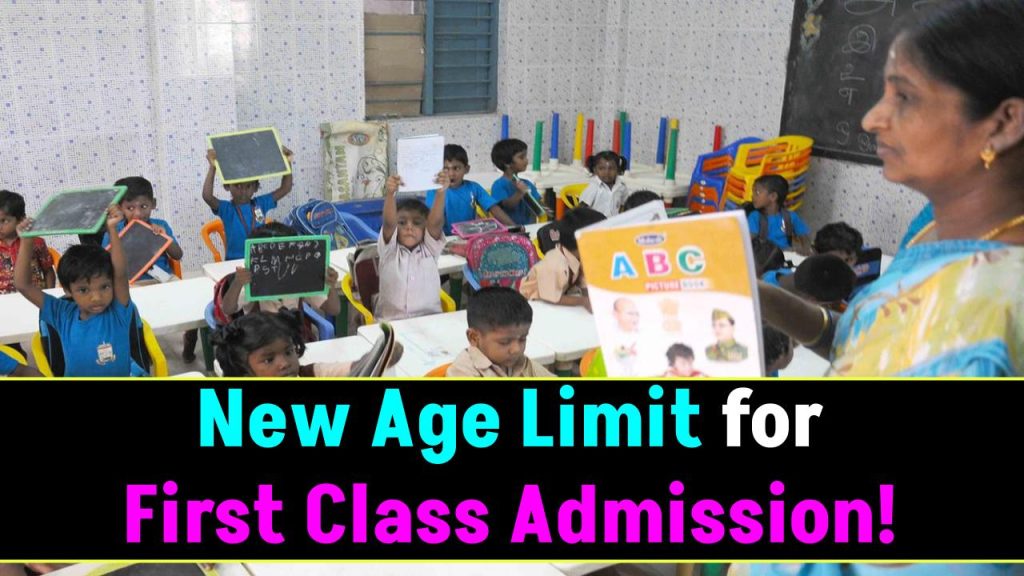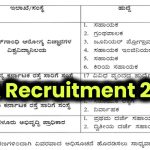
In line with the National Education Policy (NEP) 2020, the Ministry of Education has directed all states and union territories in India to set the minimum age for Class 1 admission at 6 years. This guideline aims to provide children with a strong educational foundation, ensuring they are developmentally prepared for primary school.
This article breaks down the new age limit policy, its implications for parents, schools, and children, and offers practical advice on how to navigate the changes.
First Class Admission
| Key Points | Details |
|---|---|
| New Minimum Age | 6 years for Class 1 admissions across India |
| Aligned with NEP 2020 | Focus on 3 years of preschool and 2 years of early primary schooling |
| Regional Implementation | Varies by state; parents should check local guidelines |
| Why the Change? | To ensure children are developmentally ready for formal education |
| Effect on Schools | Impacts admission cycles and enrollment numbers |
| Official Guidelines | Ministry of Education |
The new age limit for Class 1 admission is a transformative step towards improving the quality of education in India. By ensuring children are developmentally ready for formal schooling, the policy aims to enhance their learning experience and overall well-being. While this change brings several benefits, it also requires parents and schools to adapt their planning and processes.
First Class Admission: Why Was the Age Limit Changed?
The National Education Policy (NEP) 2020 emphasizes a robust foundational stage in education, comprising:
- 3 years of preschool education
- 2 years of early primary schooling (Grades 1 and 2)
This structure is designed to support children aged 3 to 8 years, focusing on cognitive development, language skills, and social interaction. By setting the minimum age at 6 years for Class 1, the policy aims to:
- Ensure that children are emotionally and socially mature enough for formal education.
- Promote a stress-free learning environment, reducing pressure on young children.
- Align India’s educational system with international standards.
First Class Admission: Implementation Across States
While the directive is national, its implementation varies by region. Here’s how some states are adopting the policy:
Uttar Pradesh
- It is now mandatory for children to be at least 6 years old to enroll in Class 1 across all government and private schools.
- This change ensures adequate preschool education before entering primary school, aligning with the NEP’s vision.
Delhi
Delhi has updated its admission guidelines for private schools for the 2025-26 academic session:
- Nursery: Minimum age of 3 years by March 31, 2025.
- Kindergarten (KG): Minimum age of 4 years by March 31, 2025.
- Class 1: Minimum age of 5 years by March 31, 2025.
Source: Hindustan Times
Other States
Other states are gradually aligning their admission guidelines with the NEP 2020 framework. However, the implementation timeline may differ. Parents are advised to check with local educational authorities for the most accurate and updated information.
Also Check: DOGE Stimulus Checks for Americans? Truth About DOGE Stimulus Checks for Americans!
First Class Admission: Impact on Parents and Schools
For Parents
- Admission Planning: Parents need to adjust their planning for nursery and kindergarten admissions accordingly.
- Preschool Enrollment: Since children will spend more time in preschool, selecting the right early education center becomes crucial.
- Financial Implications: Additional preschool years might lead to increased educational expenses.
For Schools
- Enrollment Numbers: Schools may see fluctuations in enrollment as the new age limit gets implemented.
- Curriculum Adjustments: Schools will need to align their curriculum to meet the cognitive and emotional needs of older students in Class 1.
- Teacher Training: Educators may require training to adapt to the new age group and their learning needs.
Benefits of the New Age Limit
- Developmental Readiness: Children at 6 years are generally better equipped emotionally, socially, and intellectually for formal schooling.
- Reduced Academic Pressure: Delayed school start minimizes stress and academic pressure on young children.
- Enhanced Learning Outcomes: A strong foundational stage is likely to improve learning outcomes in later years.
First Class Admission: Challenges and Concerns
Parental Concerns
- Age Difference Among Classmates: Some parents worry about their child being older than peers in the same grade.
- Impact on Working Parents: Longer preschool years can increase childcare costs for working parents.
School Challenges
- Infrastructure and Capacity: Schools may face challenges in accommodating a change in student numbers.
- Curriculum Overlap: Aligning the preschool and early primary curriculum may require significant adjustments.
Also Check: US Visa Processing Times Just Got an Update—Is Your Category Affected?
First Class Admission: Practical Advice for Parents
- Start Planning Early: Begin researching preschools and understanding the new age requirements well in advance.
- Choose the Right Preschool: Select preschools that focus on holistic development, including social and emotional skills.
- Consult Local Schools: Verify age criteria and admission processes directly with schools to avoid confusion.
- Prepare Your Child: Engage your child in early learning activities at home to prepare them for the preschool environment.
First Class Admission (FAQs)
Why has the minimum age been set to 6 years for Class 1?
The change aligns with NEP 2020, which emphasizes a strong foundational education stage, ensuring children are developmentally ready for primary school.
Will the age limit be the same in all states?
While the directive is national, implementation varies by state. Check with local educational authorities for specific guidelines.
What should I do if my child doesn’t meet the age criteria?
Consider enrolling your child in preschool or kindergarten programs that align with the NEP 2020 framework.
How does this impact private schools?
Private schools are also required to follow the new guidelines but may have slightly different age cutoffs. Confirm directly with the school.
How does this impact private schools?
Private schools are also required to follow the new guidelines but may have slightly different age cutoffs. Confirm directly with the school.
Where can I find official guidelines?
Refer to the Ministry of Education for the latest official guidelines









